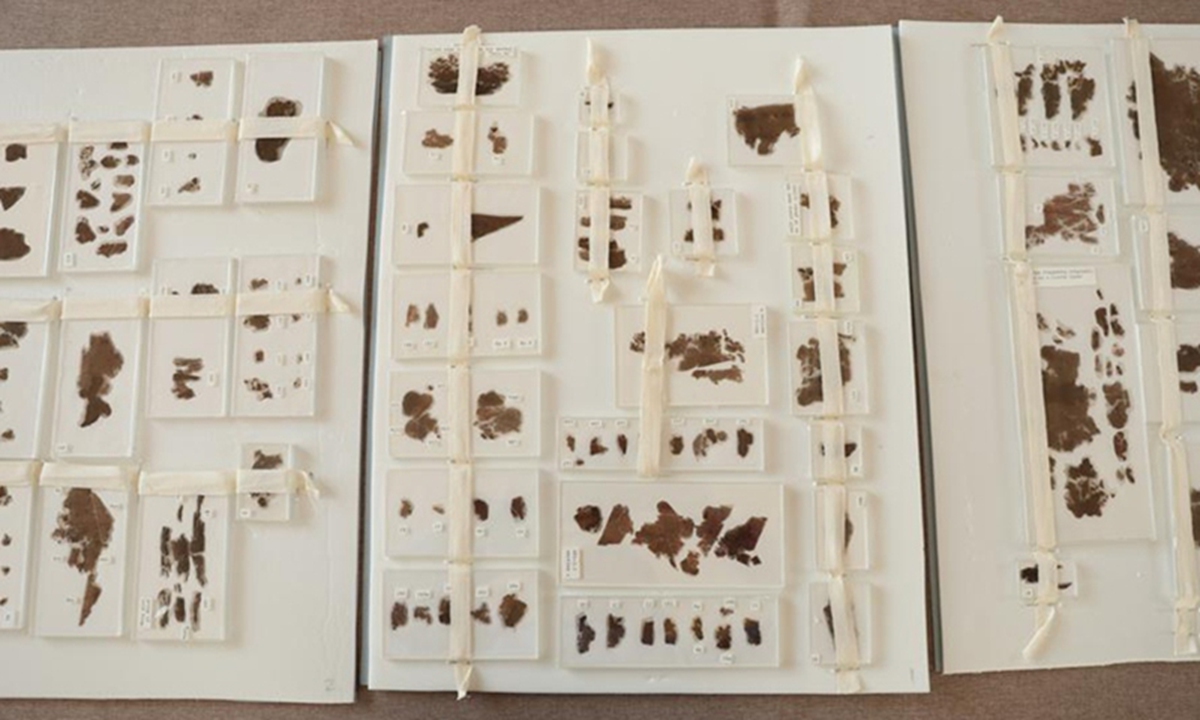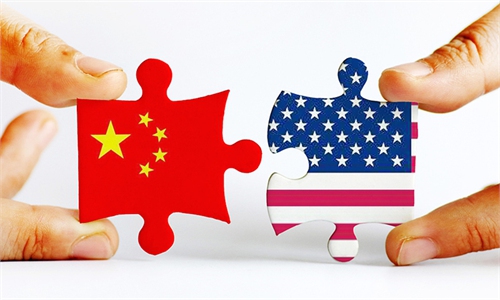
Volume II and III of the Zidanku Silk Manuscripts Photo: Courtesy of China's National Cultural Heritage Administration
Editor's Note:
On Sunday, the Zidanku Silk Manuscript volumes II and III: Wuxing Ling and Gongshou Zhan returned to China from the US. These precious artifacts, once held by the Smithsonian's National Museum of Asian Art, have ended their 79-year journey abroad. What is the significance of the return of the silk manuscripts? How does this successful repatriation pave the way for more national treasures to return home? The Global Times collected the opinion of two scholars.
Ding Gang, a senior editor with People's Daily, and a senior fellow with the Chongyang Institute for Financial Studies
For China, the journey of these manuscripts back home is more than the repatriation of physical objects; it's akin to restoring missing chapters to a nation's living chronicle, piecing back together the cultural tapestry torn during centuries of foreign invasion, colonization and illicit trade.
Their return is not simply the recovery of lost artifacts; it allows historians and scholars to reconnect vital links in the story of how Chinese civilization evolved, letting us listen to the distant "heartbeat" of Chinese antiquity.
The significance of this handover goes far beyond the cultural realm. It demonstrates a shared commitment to international norms governing cultural property's lawful return and protection.
The fact that the US was able to return these treasures to China reflects not only a respect for international agreements but an ethic of cultural stewardship and mutual respect.
The steady collaboration between Chinese and US scholars, diplomats and law enforcement affirms what can be achieved when cultural heritage is treated not as the spoils of history but as the common wealth of humanity.
More broadly, the return of cultural relics provides a vital channel for people-to-people exchanges and for building understanding and goodwill, especially when larger political relations are under strain.
Cultural cooperation acts as a bridge across turbulent diplomatic waters. Consistent progress in protecting and repatriating cultural heritage demonstrates that even global rivalries need not preclude shared achievements and that respect for one another's history can lay the foundation for more stable, multidimensional relations.
Ultimately, global efforts to track and repatriate cultural relics represent humanity's collective endeavor to respect diversity, restore justice and create a more equitable foundation for international relations.
Mark Blacklock, a journalist and lecturer in Britain
The return of the Zidanku Silk Manuscript volumes II and III is a moment that China has wished and worked for ever since they were misappropriated and taken thousands of miles from where they belong.
But it could also be seen as an earthquake moment for those interested in the acquisition, hoarding - and also the repatriation - of historical artifacts which over the centuries have largely been swept, like ill-gotten treasures, from the lands of their creation into the museums and private collections of the West, especially of the old colonial powers.
I wonder if anyone at the British Museum was watching or listening. For the event in the US gives the lie to every excuse the venerable UK institution has given for many years as justification for refusing to return approximately 23,000 Chinese artifacts - and also the unique antiquities from other countries - it holds within its walls.
The museum also excuses its refusal to return items because of a law passed in 1963 - the British Museum Act, which states that no object can be returned unless it is duplicated, damaged and no longer of public interest. But this is a law designed to keep in the UK things which do not ethically belong in the UK, and is therefore morally invalid. It is also a bad law, and could be changed by Parliament.
Another legal argument is that the Chinese property was given willingly, though this is disputed by historians. Even so, how can there be a fair exchange by one nation when it is coerced and in part occupied by another, as China was in the last century by Britain and other Western powers?
China's reacquisition of the silk manuscripts could mark a turning point in the desire for colonial powers to restore looted goods to their rightful owners.
Professor Lothar von Falkenhausen, of the Cotsen Institute of Archaeology at the University of California, Los Angeles, who was deeply involved in the manuscripts being returned, was quoted as saying: "I hope this will set a positive precedent." If it does, then the British Museum will have to rethink its attitude, or else be held in the same kind of low regard as the people who took the objects in the first place.



